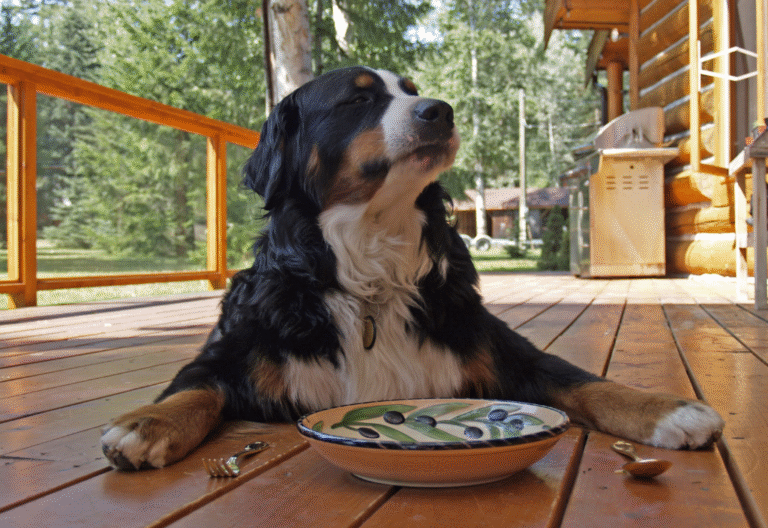Building a Support Network for Senior Dog Parents: Your Guide to Handling the Golden Years
When your once-energetic pup starts slowing down and gray hairs appear around their muzzle, you realize you’ve entered uncharted territory. Creating a comprehensive support network for senior dog parents isn’t just helpful—it’s essential for providing the best possible care while maintaining your own emotional well-being during this precious yet challenging phase of your dog’s life.

Why Senior Dog Parents Need Support More Than Ever
Watching your faithful companion age brings a unique mix of emotions. While every gentle moment feels more precious, the weight of responsibility can feel overwhelming. As dogs enter their golden years (typically around 7-8 years for larger breeds and 10-11 for smaller ones), their needs become increasingly complex.
Senior dog parents often face:
Medical complexities that go beyond routine care—managing conditions like arthritis, cognitive dysfunction, diabetes, or heart disease requires specialized knowledge and frequent monitoring.
Financial strain from increased veterinary bills, prescription medications, therapeutic foods, and mobility aids that can easily cost thousands annually.
Emotional exhaustion from constant vigilance, sleepless nights monitoring breathing, and the mental load of managing multiple medications and appointments.
Social isolation when friends don’t understand why you’re spending so much on an “old dog” or when your social life revolves around your pet’s care schedule.
Decision fatigue from constantly weighing quality of life concerns and wondering if you’re doing enough—or too much.
The truth is, you don’t have to navigate this journey alone. A strong support system transforms what feels like an impossible burden into a manageable, even meaningful experience.
Where to Find Your Support Network for Senior Dog Parents

Your Veterinary Care Team
Your veterinarian should be your first and most trusted ally, but don’t stop there. Build relationships with:
- Veterinary specialists including cardiologists, oncologists, and neurologists who understand senior-specific conditions
- Certified canine rehabilitation therapists who can help maintain mobility and manage pain
- Veterinary nutritionists who can optimize diet for aging bodies and specific health conditions
- Mobile veterinarians who provide in-home care, reducing stress for both you and your dog
Pro tip: Ask your vet for referrals and don’t hesitate to seek second opinions on major decisions.
Digital Communities That Understand
Online support groups offer 24/7 access to people who truly get it:
- Facebook groups like “Senior Dogs” or breed-specific senior groups where members share real experiences
- Reddit communities such as r/seniordogs where you can ask questions anonymously
- Specialized forums on sites with dedicated senior dog sections
- Instagram accounts and hashtags like #seniordogsofinstagram for daily inspiration and tips
Remember: While online advice is valuable, always consult professionals for medical decisions.
Your Personal Circle
Sometimes the most meaningful support comes from unexpected places:
Family members who can help with pet-sitting during appointments or emergency situations
Friends who understand when you need to leave gatherings early or decline invitations based on your dog’s needs
Neighbors who can assist with daily walks or provide emergency contact services
Co-workers who might offer flexibility when you need time off for vet visits
Professional Support Services
Specialized services are increasingly available for senior dog families:
- Certified pet sitters with senior dog experience who understand medication schedules and mobility limitations
- Pet hospice care providers who offer end-of-life support and guidance
- Pet grief counselors who help process the complex emotions of caring for an aging companion
- Dog walkers trained in senior dog care who can maintain exercise routines when you’re unavailable
Building Your Support Network: A Step-by-Step Approach
Start Early, Before Crisis Hits
The best time to build your support network is while your dog is still relatively healthy. Research resources, join communities, and establish relationships before you desperately need them.
Be Specific About Your Needs
Instead of saying “I need help,” try:
- “Could you walk Max on Tuesdays when I have late meetings?”
- “Would you be willing to drive us to the specialist appointment next month?”
- “Can I call you when I need to talk through difficult decisions?”
Create an Information Hub
Develop a shared document or notebook with:
- Emergency contact numbers
- Medication schedules and dosages
- Feeding instructions and dietary restrictions
- Behavioral quirks and comfort preferences
- Your veterinarian’s contact information
Practice Reciprocal Support
The strongest networks are built on mutual support. Share your own experiences, offer encouragement to others facing similar challenges, and celebrate the small victories together.
The Emotional Rewards of Community Support
Building a support network for senior dog parents does more than solve practical problems—it transforms the experience entirely. When you’re connected with others who understand, you’ll find:
Validation for the difficult choices you’re making and confirmation that your efforts matter
Hope through stories of other senior dogs who thrived with proper care and love
Perspective to help distinguish between normal aging and concerning symptoms
Courage to advocate for your dog’s needs and make tough decisions with confidence
Joy in celebrating the sweet, quiet moments that make this stage so special
Managing the Practical Challenges Together
Your support network can help you tackle the day-to-day realities of senior dog care:
Medication management: Create a buddy system where someone checks in about daily medications or helps organize pill dispensers during busy weeks.
Exercise modifications: Connect with other senior dog parents for gentle group walks or swimming sessions that benefit multiple dogs.
Emergency planning: Establish a support person who can step in during veterinary emergencies or when you’re traveling.
Cost management: Share information about senior dog discounts, prescription assistance programs, and cost-effective care options.
Recognizing When You Need More Support
Sometimes the informal support network isn’t enough, and that’s okay. Consider professional help when:
- You’re losing sleep consistently due to worry about your dog
- You’re avoiding social situations or work responsibilities
- You’re struggling to make decisions about your dog’s care
- You’re experiencing symptoms of depression or anxiety
- Family relationships are strained due to pet care stress
Professional pet grief counselors and therapists who specialize in human-animal bonds can provide crucial support during these times.
Final Thoughts: Embracing the Journey Together

Creating a robust support network for senior dog parents isn’t just about managing the challenges—it’s about enhancing every precious moment you have left with your beloved companion. When you’re surrounded by understanding people and reliable resources, you can focus on what matters most: cherishing the deep bond you share and ensuring your dog feels loved and comfortable every single day.
Remember, seeking support isn’t a sign of weakness; it’s a testament to how much you love your dog. By building connections with others who understand this unique journey, you’re not just improving your dog’s quality of life—you’re creating a community of compassion that makes the golden years truly golden.
Your senior dog has spent years being your loyal companion. Now, with the right support network by your side, you can return that loyalty with the exceptional care they deserve while taking care of yourself in the process. The journey may have challenges, but you don’t have to face them alone.
💌 Want more tips on caring for your aging dog? Join our email list for weekly updates and exclusive resources!






